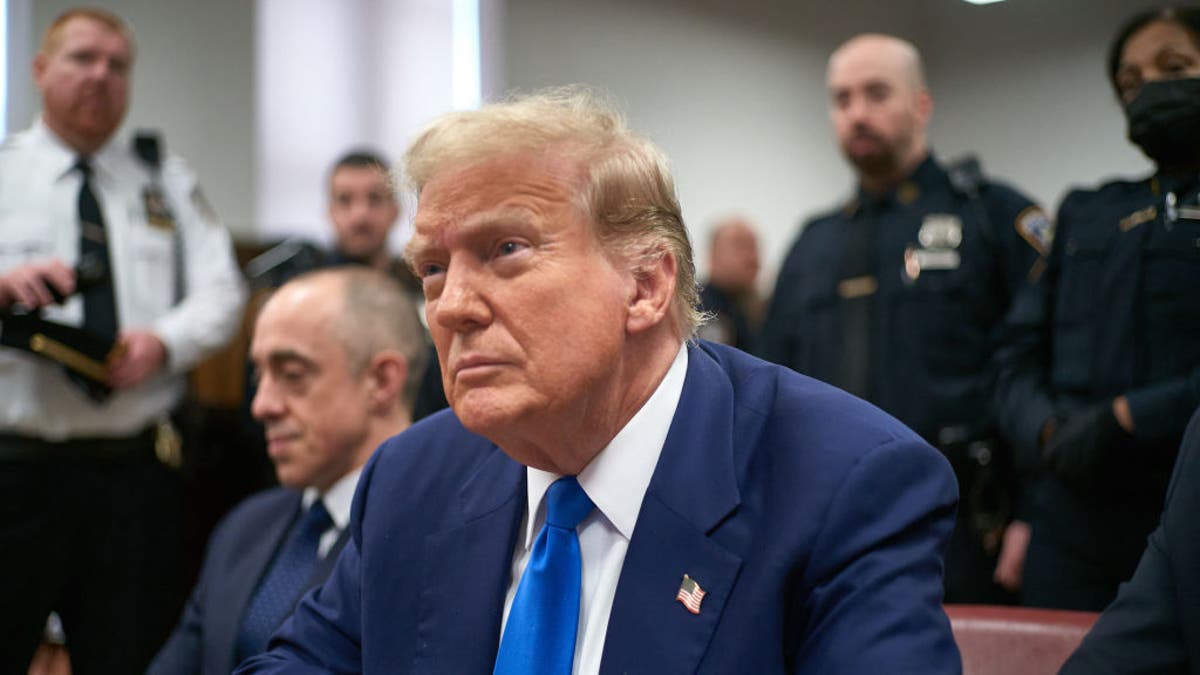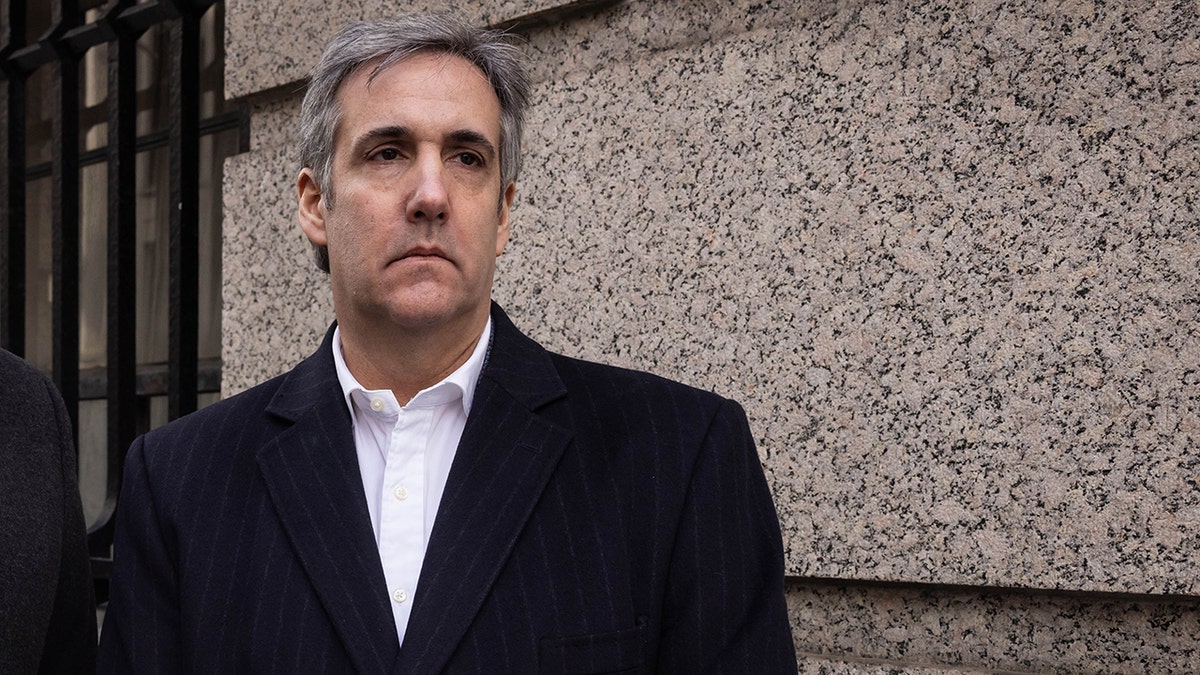Judge Jeanine Pirro: You cannot do this in America
‘The Five’ co-host Judge Jeanine Pirro joins ‘The Story’ to discuss former Trump aide Hope Hicks’ testimony at the N.Y. v. Trump trial.
New York City prosecutors again made numerous references on Friday to the leaked Access Hollywood tape where former President Donald Trump made crude comments — after the judge reiterated that the jury could not hear or watch the comments.
Judge Juan Merchan ruled that playing the tape itself would be overly prejudicial towards Trump, but not the comments Trump made in the 2005 incident that leaked just before the 2016 presidential election. In the tape, Trump used lewd language about groping women in the presence of a TV host ahead of a cameo appearance on a soap opera.
Manhattan District Attorney Alvin Bragg and his team have made numerous references to the tape — in court and in legal filings — apparently attempting to make the case that the damage from the leaked tape was a catalyst for the $130,000 payment to Stormy Daniels. Trump is charged with falsifying business records related to Daniels, whose real name is Stephanie Clifford, to quiet her story about an alleged affair with Trump. Trump has repeatedly denied the affair.
On Friday, Merchan reiterated that the tape cannot be introduced as evidence or played aloud in the courtroom because it would be prejudicial to Trump.

Former U.S. President Donald Trump with attorneys Emil Bove (L) and Todd Blanche (R) attends his at Manhattan Criminal Court on May 3, 2024 in New York City. ((Photo by Curtis Means-Pool/Getty Images))
In March, the DA argued the infamous tape should be admissible because "bears directly on defendant’s intent and motive, both at the time that he and his confederates made the Stormy Daniels payoff and later when they sought to conceal that payment."
"The release of the Access Hollywood Tape caused a panic within the campaign about the defendant’s electoral prospects and ultimately served as the catalyst for consummating the Stormy Daniels payoff," a filing stated.
Last month, Judge Merchan doubled down on his decision to not play the video for the jury because it was too prejudicial.
But on Friday morning, the prosecution again tried to argue that while it was ruled that the entire Access Hollywood tape couldn’t come into evidence, they wanted the 2016 Washington Post article that discusses it to come in to establish the date that the article was posted.
Merchan reiterated that he doesn’t want the video to be shown because it’s too powerful of evidence to have Trump’s voice and face associated with the words on the video.
On Friday, former Trump campaign press secretary and White House communications director Hope Hicks testified that Trump’s worry following the leaked tape centered around how it would affect his wife, Melania Trump.
HOPE HICKS: COHEN CALLED HIMSELF ‘MR. FIX IT’ ONLY BECAUSE HE 'BROKE IT'

Michael Cohen, former personal lawyer to US President Donald Trump, right, outside federal court in New York, US, on Thursday, Dec. 14, 2023. (Yuki Iwamura/Bloomberg via Getty Images)
"He was worried about how this would be viewed at home," Hicks said. "Mr. Trump really values Mrs. Trump’s opinion. She doesn’t weigh in all the time, but when she does…it’s valuable," Hicks testified.
"[I] don’t think he wanted anyone in his family to be hurt or embarrassed about anything on the campaign. He wanted them to be proud of him," Hicks later added.
Her testimony, which she provided to the court under subpoena, could undercut the prosecution’s arguments that the Trump tape was a catalyst to the Stormy Daniels payment out of concern about how a subsequent bad media hit would impact his campaign.
The defense team argued earlier in the day that the recent decision in the case of the disgraced Hollywood producer, Harvey Weinstein, could be relevant in Trump’s case.
Weinstein’s conviction was recently overturned by the New York State Court of Appeals after the court granted him a new trial, saying the trial judge had allowed prosecutors to call women who said Weinstein had assaulted them to testify, even though their accusations did not specifically relate to the entertainment mogul's charges.
Trump’s defense team argued that the prosecution has been attempting to introduce evidence, including the Access Hollywood tape, that is not directly related to Trump’s alleged crimes.
The decision to overturn the Weinstein conviction relied on two courtroom terms: the "Molineux rule" and a "Sandoval ruling."
NY V. TRUMP: HOPE HICKS TESTIFIES, PROSECUTORS REFER TO 'ACCESS HOLLYWOOD' TAPE

Trump speaks to members of the media as he departs his trial on May 3, 2024 in New York City.
The Molineux rule says that evidence of prior uncharged crimes or acts committed by an individual may not be entered into evidence in order to infer the guilt of the defendant.
Such prior acts may be entered into evidence for certain other reasons, like establishing intent, or knowledge, but such uncharged acts may not be entered in a manner that could taint the jury’s opinion as to the likelihood that the defendant committed the crime charged.
In Trump’s case, defense attorney Todd Blanche argued Friday that evidence is being introduced that does not establish elements of the crime charged, but rather implies Trump’s guilt.
A Sandoval ruling addresses a defendant potentially testifying at their own trial. Prosecutors typically ask to introduce, and the defense typically asks to limit, past allegations of behavior or actions by the defendant.
CLICK HERE TO GET THE FOX NEWS APP
A defendant may choose not to testify based on what the judge allows prosecutors to question the defendant about. But the issue in Trump’s case would be whether a defendant was prevented altogether from testifying in their own defense by the allowance of questions from the prosecutor that would prejudice the jury.
Before adjourning for the day, both parties continued to discuss the Sandoval rule and what questions Trump could be asked if he testifies.
It's unclear whether Trump will testify later in the course of the unprecedented trial.
Fox News' Kevin Ward, Grace Taggart, Maria Pavovich, Shannon Bream and Kerri Kupec Urbahn contributed to this report.













































